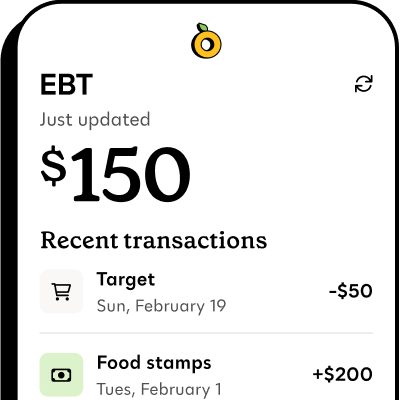SNAP changes FAQs: What you need to know


Additional expert review by
- 1. Who is most at risk because of the SNAP changes?
- 2. If I lose my food stamps because of the new SNAP rules, does that mean my kids do too?
- 3. Who is exempt from new SNAP work requirements and what does “able-bodied” mean?
- 4. If I’m homeless, do I still need to meet SNAP work requirements?
- 5. If my disability application is pending, do I still need to meet SNAP work requirements to keep my benefits?
- 6. If I lose food stamps, will my other benefits be affected?
Table of contents
- 1. Who is most at risk because of the SNAP changes?
- 2. If I lose my food stamps because of the new SNAP rules, does that mean my kids do too?
- 3. Who is exempt from new SNAP work requirements and what does “able-bodied” mean?
- 4. If I’m homeless, do I still need to meet SNAP work requirements?
- 5. If my disability application is pending, do I still need to meet SNAP work requirements to keep my benefits?
- 6. If I lose food stamps, will my other benefits be affected?
The "Big Beautiful Bill” which passed in July 2025, means changes to the SNAP program that could affect many people’s eligibility and access to benefits.
If you're one of the roughly 42 million Americans who receive SNAP benefits (also called food stamps), you might be concerned about whether your monthly deposits are in danger of being reduced or cut.
Here are some answers to common questions about who’s most at risk, how the new SNAP rules work, and where to find help with your benefits.

Propel is the #1-rated EBT balance checking app
1. Who is most at risk because of the SNAP changes?#1-who-is-most-at-risk-because-of-the-snap-changes
The new SNAP rules increase work requirements, changes how states manage eligibility, and adjusts how benefits are calculated.
People whose SNAP benefits may be most at risk include:
- “Able-bodied adults” ages 18 to 64 without dependents: The expanded work requirements in the bill mean anyone in this category must now prove they’re meeting monthly work and volunteer requirements or risk losing their SNAP benefits.
- Parents with teenage children: Parents whose youngest dependent child is 14 or older must now meet work requirements too.
- People who don’t meet new “able-bodied” standards but don’t have proof of disability: Without documentation of your disability, you may be considered “able-bodied” and required to prove you’re meeting the work requirements.
- Veterans and vulnerable groups: Veterans, people experiencing homelessness, and former foster youth must now meet work requirements or risk losing SNAP benefits. Certain immigrant groups like refugees, people seeking asylum, survivors of domestic violence, and victims of trafficking who haven't become permanent residents are no longer eligible for benefits.
Some households may still see smaller monthly benefit amounts even if everyone’s eligibility stays the same.
The new rules also change how utility costs are factored into SNAP, which could lower monthly benefits even for families who all stay eligible.
2. If I lose my food stamps because of the new SNAP rules, does that mean my kids do too?#2-if-i-lose-my-food-stamps-because-of-the-new-snap-rules-does-that-mean-my-kids-do-too
Not necessarily. Under the new SNAP rules, if you’re an adult who loses your eligibility, the rest of your household, including any children, may be able to keep getting SNAP deposits.
If this happens to your family, the state will remove you (the ineligible adult) from the SNAP case but keep the eligible household members.
Your family’s benefit amount will be recalculated based on fewer people, so it may go down, but your kids can still get SNAP as long as your household still meets all the other eligibility rules.
This is different from cases where you lose SNAP because the entire household no longer qualifies, like if your total income is too high or you miss recertification. In those cases, children would also lose benefits.
Here are some situations where an adult may lose benefits while the kids in their household keep getting SNAP:
- They don’t meet the work requirements
- They have a criminal history (in some states)
- They commit intentional or unintentional SNAP fraud
- Their immigration status makes them ineligible
3. Who is exempt from new SNAP work requirements and what does “able-bodied” mean?#3-who-is-exempt-from-new-snap-work-requirements-and-what-does-able-bodied-mean
Under the new SNAP rules, more people than ever before are considered “Able-Bodied Adults Without Dependents (ABAWDs)” and have to meet SNAP work requirements in order to keep their SNAP benefits.
But there are still some people who can get SNAP without having to show proof they’re working or volunteering a certain number of hours per month.
You may be exempt from the work requirements if:
- You are under age 18
- You are over age 64
- You live with and care for a dependent child under 14
- You are unable to work because of a disability (with documentation)
- You are currently pregnant
- You are a caregiver for a person with a disability, regardless of age
- You are a student enrolled at least half-time in school, training, or higher education
- You meet another state-approved exemption (this varies by state)
4. If I’m homeless, do I still need to meet SNAP work requirements?#4-if-im-homeless-do-i-still-need-to-meet-snap-work-requirements
Not always, but under the new SNAP rules, homelessness alone does not exempt people from work requirements.
Before the new legislation passed in July, several states (like California, Oregon, New York, Washington, and Illinois) gave automatic or “good cause” exemptions to unhoused people who faced challenges to working.
Challenges include living in a shelter without reliable transportation, living in unsafe conditions, or having serious health issues.
But now, states must document and justify each case, so not all people experiencing homelessness will qualify for an exemption.
If you’re currently homeless, it’s important to ask your SNAP caseworker whether your situation qualifies for an exemption or “good cause” under your state’s rules.
5. If my disability application is pending, do I still need to meet SNAP work requirements to keep my benefits?#5-if-my-disability-application-is-pending-do-i-still-need-to-meet-snap-work-requirements-to-keep-my-benefits
It depends. A pending disability application with Social Security (SSI or SSDI) is not always enough to exempt you from SNAP work requirements.
In some states, if you can provide your caseworker with medical paperwork or doctor’s notes proving an inability to work because of a disability, you may be able to get an exemption from SNAP work requirements.
Make sure to ask your caseworker if you may be able to qualify for an exemption. Prepare to submit doctor’s notes or other records to your SNAP office while your disability case is under review.
6. If I lose food stamps, will my other benefits be affected?#6-if-i-lose-food-stamps-will-my-other-benefits-be-affected
Not necessarily. Eligibility for SNAP can sometimes be used to automatically qualify for other benefits programs.
If you lose SNAP, and you use your SNAP eligibility to qualify for other programs, you may need to provide additional income or other documentation to your state to keep your other benefits.
Programs that may be affected include:
- Free or reduced-cost school meals
- Summer EBT
- WIC
- Medicaid
- Certain utility or internet discounts
- Other free things you can get with SNAP
If you get other benefits in addition to SNAP and you’re worried you’re at risk of losing your SNAP benefits, talk to your caseworker and see if there’s anything you need to do to keep your eligibility.







